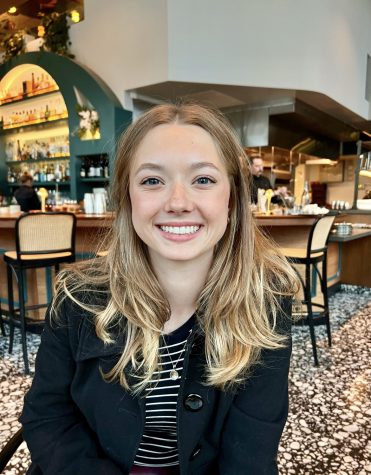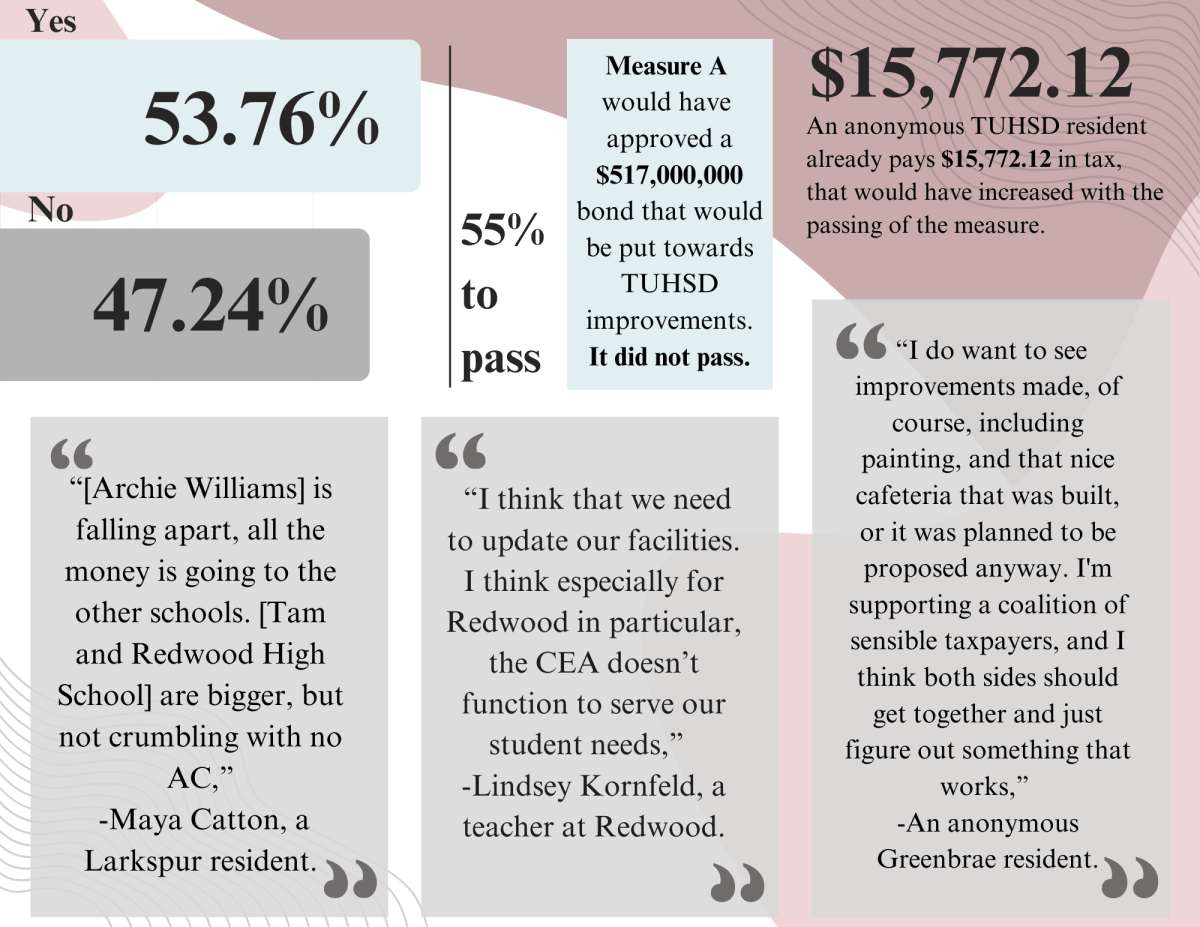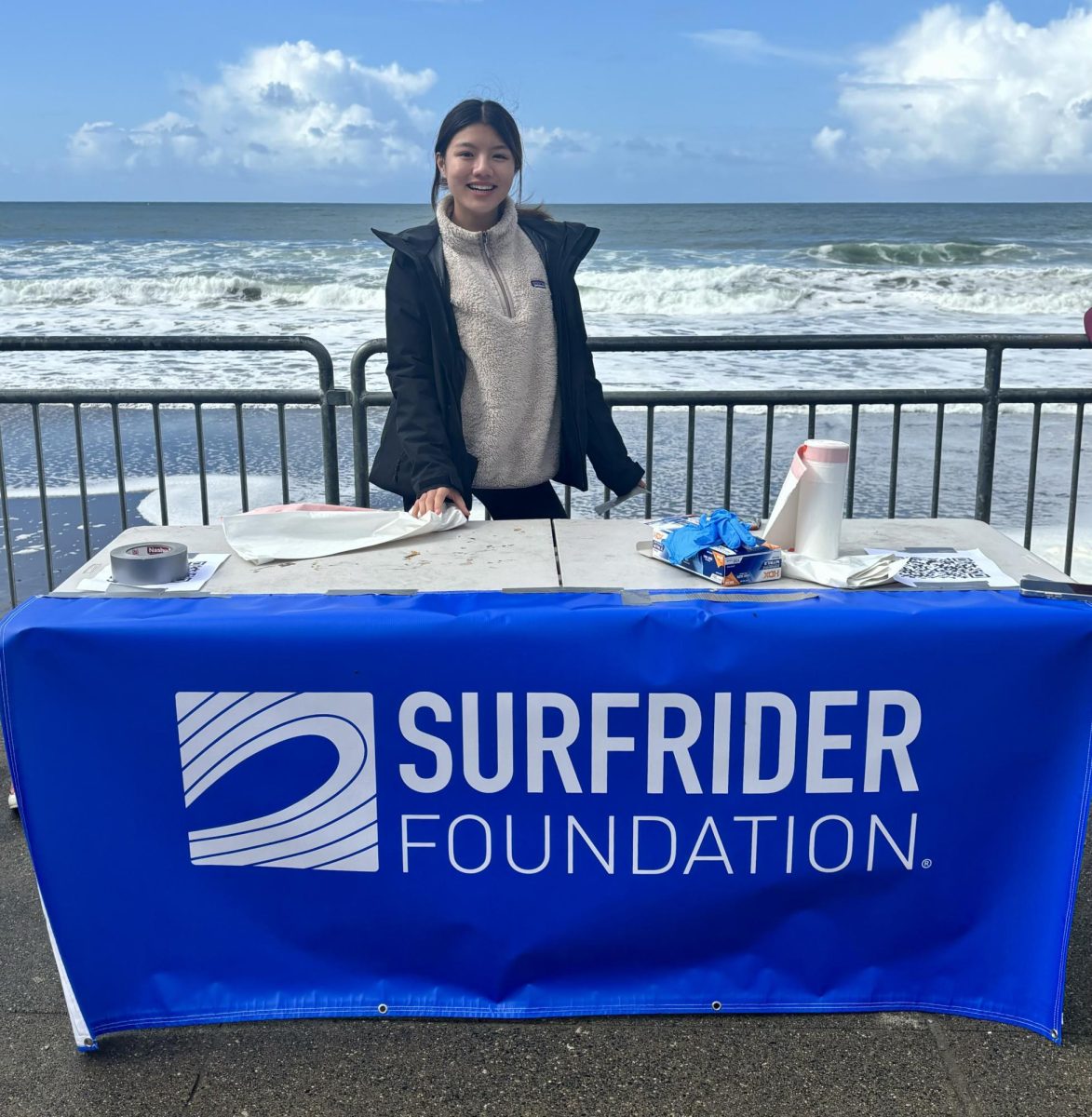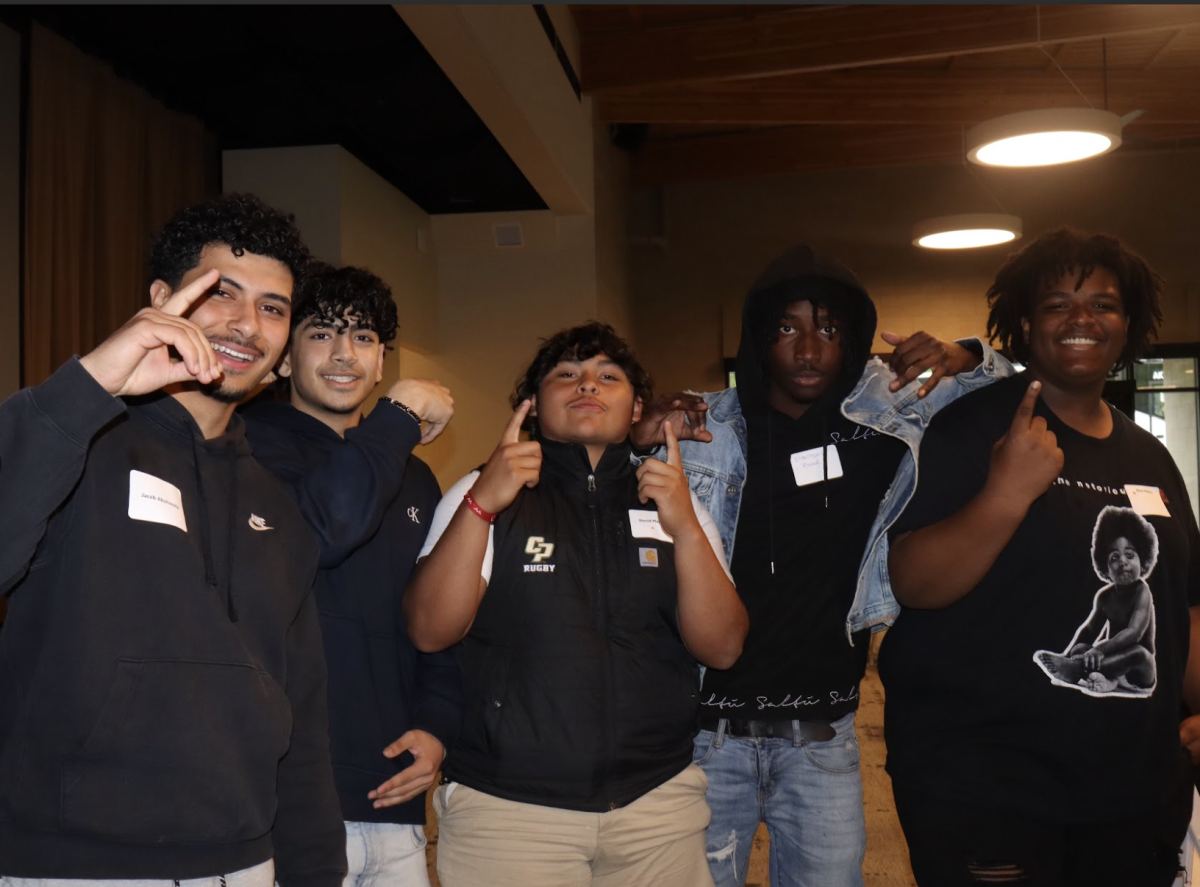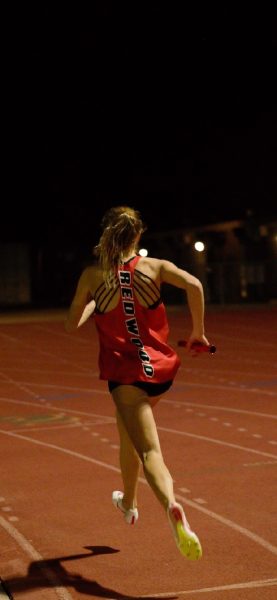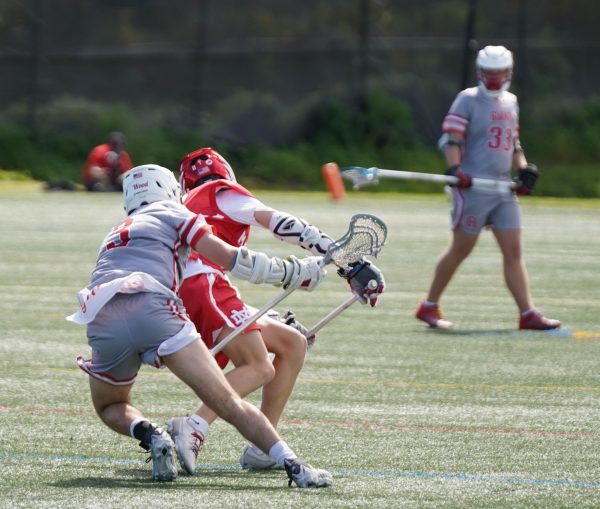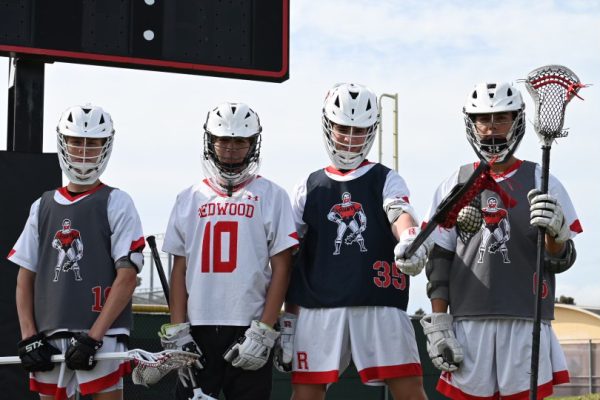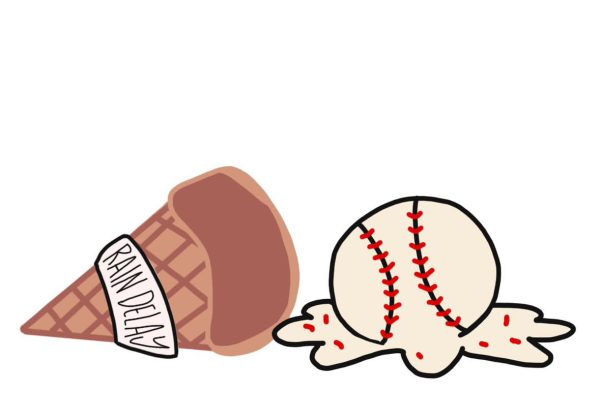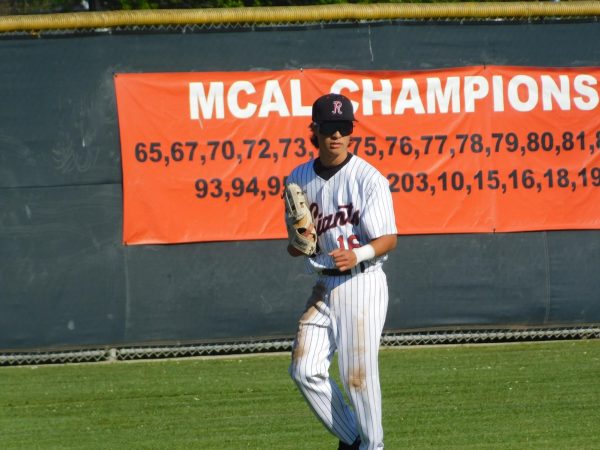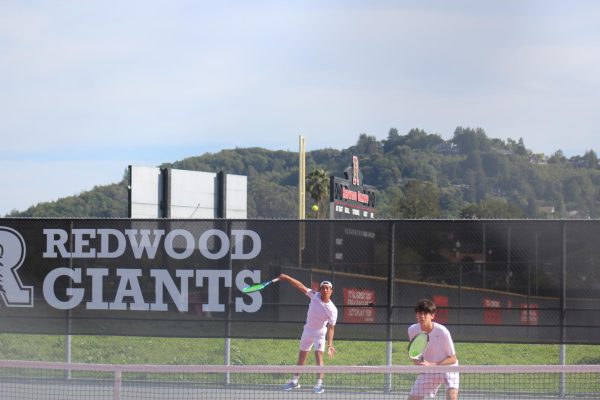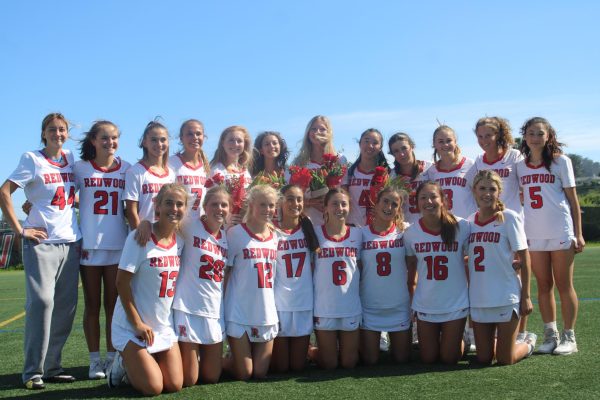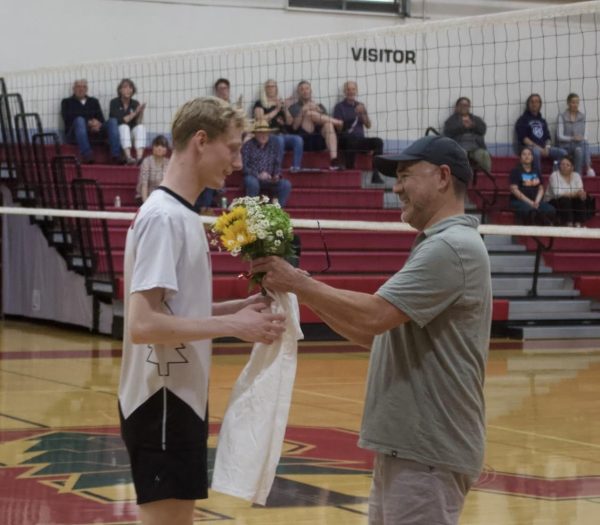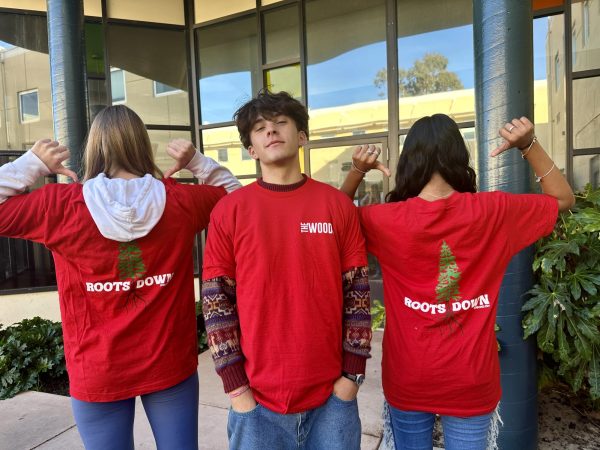Censorship evolves within student cheering sections
April 1, 2023
In 1987, there were no official Marin County Athletic League (MCAL) rules regulating fans’ behavior at sports events. With this freedom, a group of Redwood students came together to form an energetic group known as the “Unknown Animals,” who wore face paint to sporting events and cheered rambunctiously. The group’s name was coined from their loud energy and animalistic behavior, which they showed off by wearing no shirts and covering their bodies and faces with red paint. Redwood alumnus Dave Allen graduated in 1987 and started the group when he attended a basketball game during his freshman year.
“One day, a couple of my friends and I randomly decided to stop by [a basketball game]. There wasn’t a huge student section, but it was enough to get our attention. It was weird to see teenagers having an opinion on a game, whether it was positive, negative or encouraging. It was the first time I realized the influence that students can have on a game; we could be like the sixth man on the court,” Allen said.
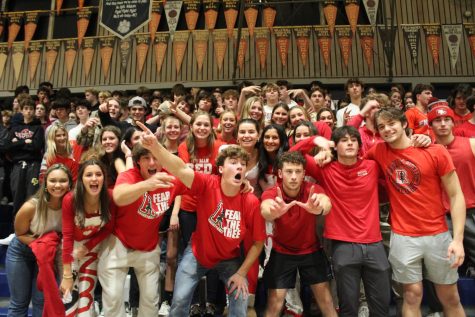
![]() After that moment, Allen and his friends were committed to making an impact. Beginning sophomore year, they would brainstorm cheers and pass out copies of their chants to other students, with the hope that their spirit would help athletic teams succeed.
After that moment, Allen and his friends were committed to making an impact. Beginning sophomore year, they would brainstorm cheers and pass out copies of their chants to other students, with the hope that their spirit would help athletic teams succeed.
“Energy, support and camaraderie; that’s what we were aiming for. People were having fun and nobody was getting hurt. There were so many positives: It brought people to the games — which the players loved — more people started going to girls’ games and we learned how to unify and be supportive, which is so important,” Allen said.
Although Allen and others in the “Unknown Animals” were well-intentioned, they occasionally clashed with the administration over the profanity used in cheers, the way they dressed and the face paint that they wore.
“At first, [the administration] told us that we were being too physical. Then they told us we weren’t allowed to wear face paint anymore. Then we couldn’t do certain cheers. Then we couldn’t wear certain things,” Allen said. “When we would ask them, ‘Why not?’ they never had an answer. It made us upset that they were trying to control us. We felt like they were hurting our freedom of speech [but] all we were doing was expressing ourselves.”
Now, this issue has expanded past administration and become an aspect of the game that is overseen by MCAL rules. According to the Redwood website, students are not allowed to have “face paint except a small school logo” or “costumes except for school mascots.” 
![]()
MCAL commissioner Susie Woodall, who oversees the board of athletic directors and board of principals across the league, sees the rules as necessary due to a decline in fan behavior.
“We’ve [come] to a place where people’s behaviors are not respectful towards others. There have been situations within [student] sections where there has been really bad behavior, like when it’s racially motivated,” Woodall said. “It’s just sad to me. There are times where I think we’ve truly lost what competition is all about. It’s just about having fun participating in a sport that you really love.”
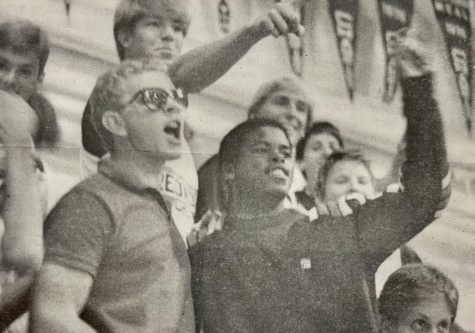
As Woodall has been working for MCAL since 2000, she has seen many situations over the years that resulted in negative outcomes due to inappropriate behavior from fans, and she believes that sportsmanship regulations work to prevent these circumstances.
“We’re not trying to stop anybody’s freedom of anything. It’s just, when you put [over] 1,000 people in a gym for a basketball game, you want to make sure that everybody who’s there is safe, and we can’t take any risks with that. Some people may want to say, [by limiting] face paint, costumes and cheers we’re trying to take all the fun out of it; it’s quite the opposite. We want everybody to have a good time, but they need to be safe in doing it,” Woodall said.
However, for senior Colin McGrath, an active participant in cheers during athletic events, the current regulations limit the support that he and his peers can express, which he acknowledges as an aspect that needs to be altered.
“The rules limit creativity. When we can’t wear certain clothes or face paint, it’s a limitation of free speech and personal representation, especially when it is not causing any harm to anyone at the event,” McGrath said.
During his time at Redwood, Allen also felt limited by the regulations, which were not associated with MCAL at the time. He admitted to occasionally using excessive profanity in certain cheers, but still felt constricted by the administration.
From 1987 until now, MCAL rules have changed, but the energy that the “Unknown Animals” carried has had a lasting impact on student sections. However, for Allen, he sees improvement from his years at Redwood.
“When I look at student sections at games now, it feels unreal. For me, it’s like that spirit that started with the ‘Unknown Animals’ has never died, which is why I think it’s so awesome,” Allen said. “You’re only in high school once, and you have to take advantage of those years.”

